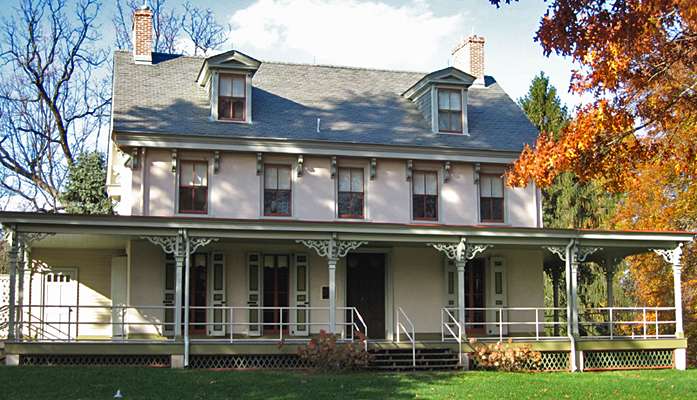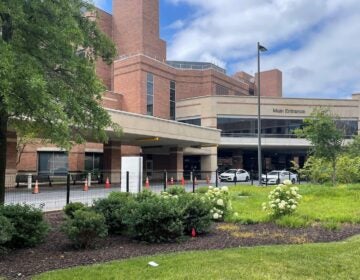Delaware schools prepare for influx of Hispanic students [video]
ListenWith classes scheduled to begin next month, Sussex County’s Indian River School District is bracing for another potential spike in enrollment.
At least 117 school-aged children who illegally entered the United States largely from Central America have been placed with family members or sponsors throughout Delaware.
The school-aged children were part of a recent wave of 57,000 unaccompanied minors who crossed the border with Mexico since October 2013.
With close to 19,000 Hispanics and Latinos downstate, some of the 117 unaccompanied minors have connected with family members there.
Only recently, however, did state leaders find out about the immigrant children’s presence in Delaware. In July, Gov. Jack Markell sent a letter to state lawmakers after learning about their plight.
The letter read: “The [U.S. Dept. of Health and Human Services] does not disclose the identity or location of these families to protect the privacy of the families living here and the children… Some of these children may enroll in Delaware schools while awaiting processing by federal authorities.”
Accommodating the surge
The Indian River School District has already scrambled to accommodate a surge in their number of students.
Superintendent Dr. Susan Bunting said her district had to reassign teachers last year to meet the needs of 70 mostly Hispanic, non-English speaking teenagers who suddenly enrolled at Sussex Central High School in Georgetown.
“We think the 70 were part of the 117. And the government officials are telling us that they also think that we have seen the majority of students that are going to be placed in Delaware,” said Bunting, who is not expecting as big of an influx in enrollment this school year.
The district, nonetheless, has prepared a plan to accommodate any number of unaccompanied minors this year. It has set aside two classrooms for students who speak little or no English inside its recently-established “newcomer” center at the G.W. Carver Center in Frankford.
“We are prepared with these two new classrooms to deal with it in a manner that we were not prepared to deal with it last year. We ‘made due’ as they would say last year, but this year we actually have an academic program, specialized materials, teachers that are assigned specifically to do that,” Bunting said.
Delaware’s Dept. of Education was also left in the dark and said that the specific impact on any one school or district remains to be seen.
More questions than answers
But with more questions than answers, longtime Indian River School District School Board Member Donald Hattier is crying foul.
“We do not know what their educational backgrounds are going to be, we do not know their English language proficiencies, we do not even know how many there are, we do not know their health statuses is, we basically just don’t know,” he said.
The unaccompanied minors come with no funding from the federal government; as a result, school districts simply have to absorb any and all costs.
“This is simply the feds running roughshot, in my opinion, over everybody else. And they’ve made a decision here to do things and they’re just gonna do it and they really don’t seem to care,” Hattier said. “Now you have to start taking resources away from all of those kids that were already here, all of those programs that were already developed here and you have to start redistributing it. Frankly, it’s not fair.”
While Bunting thinks the feds could have handled the situation differently, “It’s our privilege to work with every child that crosses the threshold of our schools. We’re going to try to meet the needs as best we can.”
Also feeling the pinch
A nonprofit in Georgetown is also feeling the pinch by trying to do right by the unaccompanied minors in the state.
La Esperanza is a nonprofit organization that provides resources, including immigration and victim services, to local Hispanic adults, children and families.
Executive Director Claudia Peña Porretti said her staff noticed the influx of teenagers from Guatemala, Honduras and El Salvador beginning last fall.
“We noticed that there were more youth between the ages of 14 and 17 coming by themselves and they were in need of enrollment in school and registering for school,” Porretti said.
La Esperanza depends on state money, donations and grants. Despite resources that are already stretched thin, Porretti said that the organization, with or without federal money, wants to do right by these children.
“If we don’t receive the funding, we’re still going to help them. Our doors are always open to them. We have to help them. As a society, as a state, as a community, we have to help them,” she said.
Markell noted in his letter that all of the children received health screenings and necessary vaccinations before being placed with family members in Delaware. He also said he would continue to ask the federal government for financial support.
WHYY is your source for fact-based, in-depth journalism and information. As a nonprofit organization, we rely on financial support from readers like you. Please give today.








